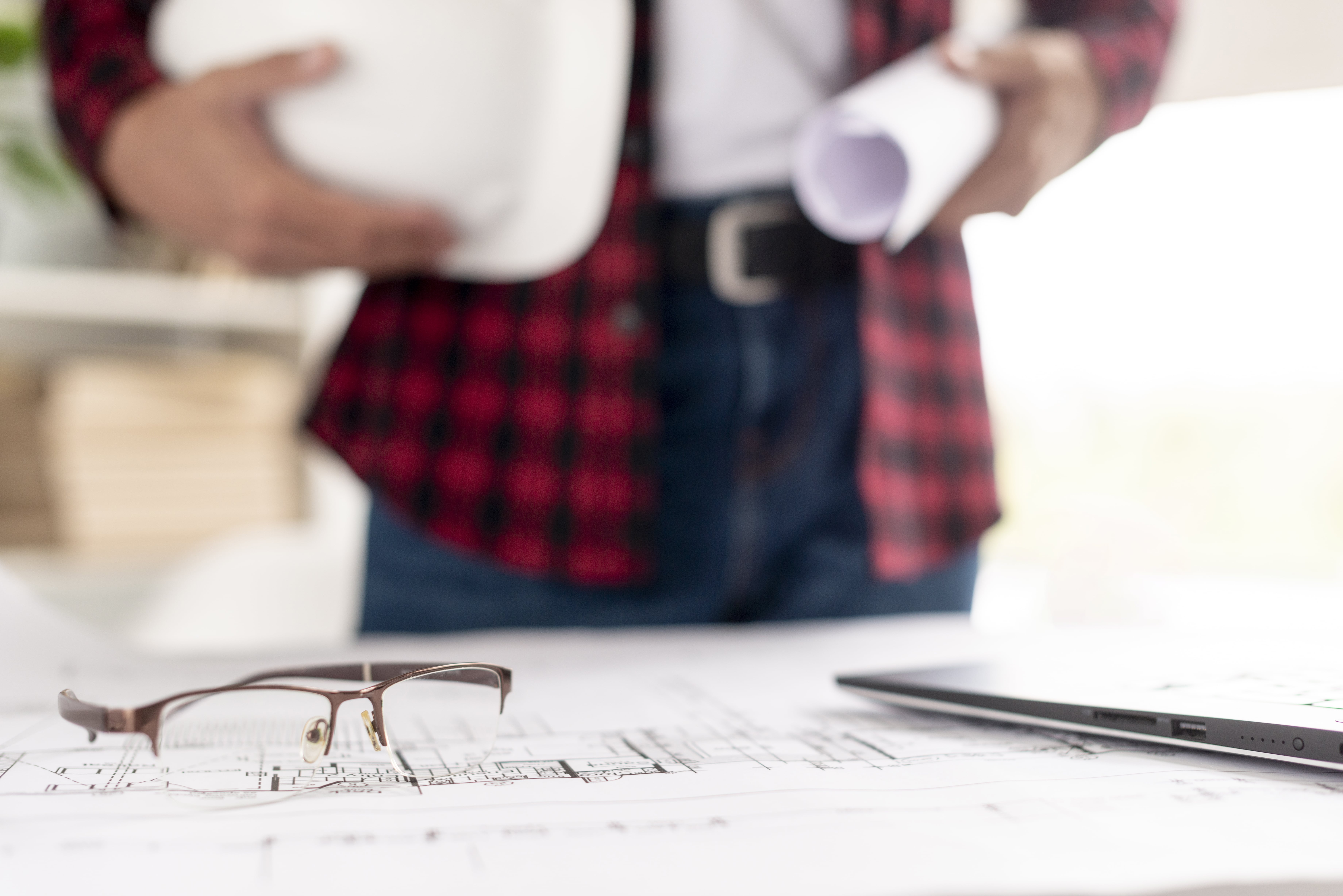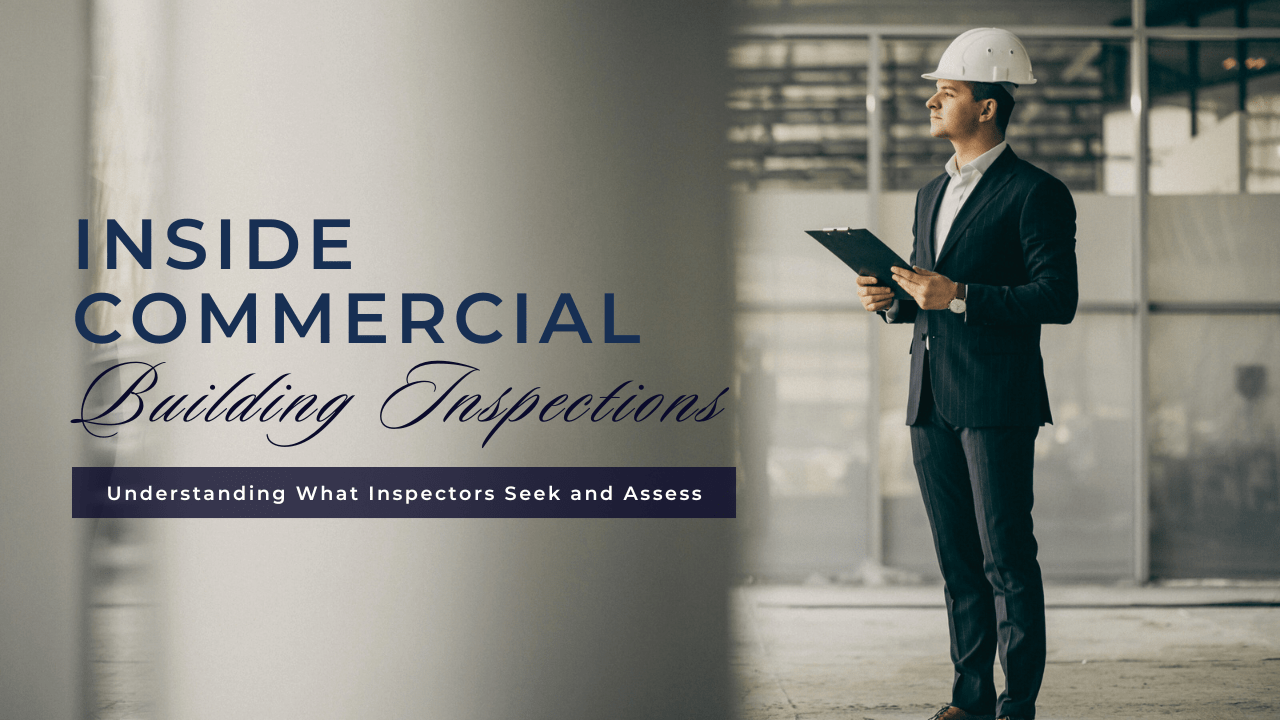As a real estate investor in Southern California, one of the most important steps you need to take before buying a commercial property is to have it inspected. Commercial building inspections are designed to help you identify potential issues that could affect the value and safety of the property. Although it can be a bit overwhelming to navigate the inspection process, understanding what inspectors look for and how they assess the property can help you make informed decisions.
Once you close on the property and begin renting the space out to commercial tenants, there are a series of inspections that you’ll need to continue doing in order to ensure the property continues to be safe. There are state and local fire codes and other requirements that need to be met. New regulations around toxic chemicals are also going to require that you are hyper-aware of the materials being used to manage pest control, cleaning, and other building operations.
This can be a source of confusion for some investors, even those with a lot of experience in Southern California commercial property management. What are inspectors looking for? What are they evaluating, and how do you know your building is in good condition?
At Bell Properties, we help commercial investors navigate questions such as these all the time. So, we’re taking an in-depth look at commercial building inspections in California, and talking about what they cover and why they’re important.
This is an important part of ensuring your investment remains sound.
The Particulars of a Commercial Building Inspection in Southern California
A commercial building inspection is a comprehensive review of a property’s systems, components, and overall condition. During an inspection, the inspector will examine a building’s:
Structure
Plumbing
Electrical
HVAC
Roofing
Other major systems inside of your building will also be inspected, as well as outbuildings and exterior elements. The inspector who is evaluating the condition of your property will look for signs of wear, damage, or malfunction. The inspector will also evaluate any safety hazards, building code violations, or other issues that could impact the property’s value or safety.
You’ll want to make sure that the entire property is available to an inspector before they begin to do their work. There should be access to the roof, the basement, and any auxiliary buildings or spaces. You don’t want to have a lot of possessions, furniture, or other belongings blocking doors, stairs, and windows.
What Are Building Inspectors Looking for During These Inspections?
In addition to evaluating individual systems and components, inspectors will also look at the building as a whole to determine whether it’s functional, safe, and in compliance with all of the state and local codes.
For example, you may have an inspector who spends time evaluating the building’s exterior to ensure it’s structurally sound and free from damage. If a balcony looks unstable or a door doesn’t lock properly, they’ll highlight these concerns in their report.
Your building inspector may also evaluate the property’s drainage, to look for potential blockages, leaks, and standing water that could pose a threat. You can expect them to check the parking, particularly the condition of your parking lot or the security of your parking garage. When there are walkways, stairs, or elevators, inspectors will want to make sure they’re safe and code-compliant.
Inside the building, they’ll examine the layout, accessibility, and ventilation of the property, as well as the condition of the walls, ceilings, and floors. If anything seems to be a threat to the safety of people inside the building, they’ll sound the alarm. If there are upgrades and updates that are not necessarily urgent but might help your building function better, you may get some recommendations as well.
Southern California Commercial Property Management: Building Inspection Logistics
There are a lot of logistics and details to manage when you’re having a commercial building inspected. This is where a Southern California commercial property management partner can be especially valuable. At Bell Properties, we have been through these inspections before and we always like to prepare our owners and investors for what to expect and how to proceed.
Most of the owners Bell Properties works with want to know how long an inspection will take. This is understandable; having an inspector at your property can disrupt the general flow of your work and the work that your tenants are doing.
It actually depends. The length of a commercial building inspection can vary depending on the size and complexity of the property. If you have multiple floors and a space that covers 20,000 square feet, your inspector will be there longer than if you own a single warehouse that has four easy walls and covers not more than 2,000 square feet.
Generally, inspections take several hours to complete, and you’ll want to plan on being available and accessible throughout the duration of that inspection in case something is needed or questions arise. If you’re working with a property manager, they will of course be the point of contact instead of you.
At the end of the inspection, the building inspector will provide you with a detailed report that is likely to include their findings, recommendations, and any immediate repairs or safety hazards that need to be addressed.
This is not a report to be simply filed away and forgotten about.
Use the report to identify and address any challenges or issues that have come up. You’ll have all of the information you need to ensure your commercial property is up to code, safe for tenants, and in a condition that’s functional.
Choosing a Commercial Building Inspector
Commercial building inspections should be conducted by licensed and experienced building inspectors who are certified to evaluate commercial properties. When choosing an inspector, it’s essential to do your research and choose someone who has experience in your specific property type and location. You may also want to consider an inspector who specializes in certain types of commercial properties, such as retail, hospitality, or healthcare.
Whether you’re purchasing a warehouse, storefront, or office building, much of your success in protecting your property and keeping it safe and functional will come down to the accuracy of the building inspection that’s conducted. When you’re preparing to invest in a commercial building, make sure that the commercial building inspector you choose has the experience, knowledge, and qualifications to spot expensive and/or hazardous issues before you become responsible for them.
Your Southern California commercial property management company can take care of hiring and scheduling the inspectors that you need for your property. At Bell Properties, we have relationships in place with a number of inspectors who can help you before you buy a property and after you already own it, when you’re working to keep your property in good condition, well-maintained, and up to all relevant codes.
Prepare for your Commercial Building Inspection
 To make sure your commercial building inspection goes smoothly, it’s important to prepare in advance and be ready for the physical inspection of your property. One of the most critical preparation steps is to gather and review any available property records, including:
To make sure your commercial building inspection goes smoothly, it’s important to prepare in advance and be ready for the physical inspection of your property. One of the most critical preparation steps is to gather and review any available property records, including:
Existing building plans
Permits that have been obtained or applied for
If you’re scheduling the inspection after you’ve taken possession, we recommend that you take care of any minor repairs that you have been putting off. You want your property to be in its best possible shape before the inspector walks through. If you’re scheduling this inspection before you buy a property, make sure the current owner is aware that you’re having the inspection done, and plan to be on-site during the inspection. The current owner may want to be there as well.
As we have already recommended, hiring a professional Southern California commercial property manager to evaluate the property before the inspection is a great way to prepare for it. Your property manager can even provide you with recommendations for repairs or upgrades you may need to make in advance of the inspection.
Commercial building inspections are a critical step in the real estate investment process, and when you ask for them before buying a property, they can help you avoid costly surprises or safety hazards down the line. We know that in a competitive real estate market, when you’re making offers among other buyers who are making offers, it’s tempting to waive an inspection requirement.
Always go through with the inspection.
You will want to keep up with routine inspections once you own the property, too. It’s only when you start to overlook these basic preventative requirements that things begin to deteriorate and go wrong.
By understanding what inspectors look for and how they assess commercial properties, you can make informed decisions about your investments and ensure your properties are sound. Whether you’re new to commercial real estate or a seasoned investor, taking the time to conduct a thorough inspection can help you build a portfolio that’s profitable, safe, and sustainable.
We are here to help with inspections and anything else that your commercial investment goals require. Please don’t hesitate to contact us at Bell Properties Commercial Real Estate.



